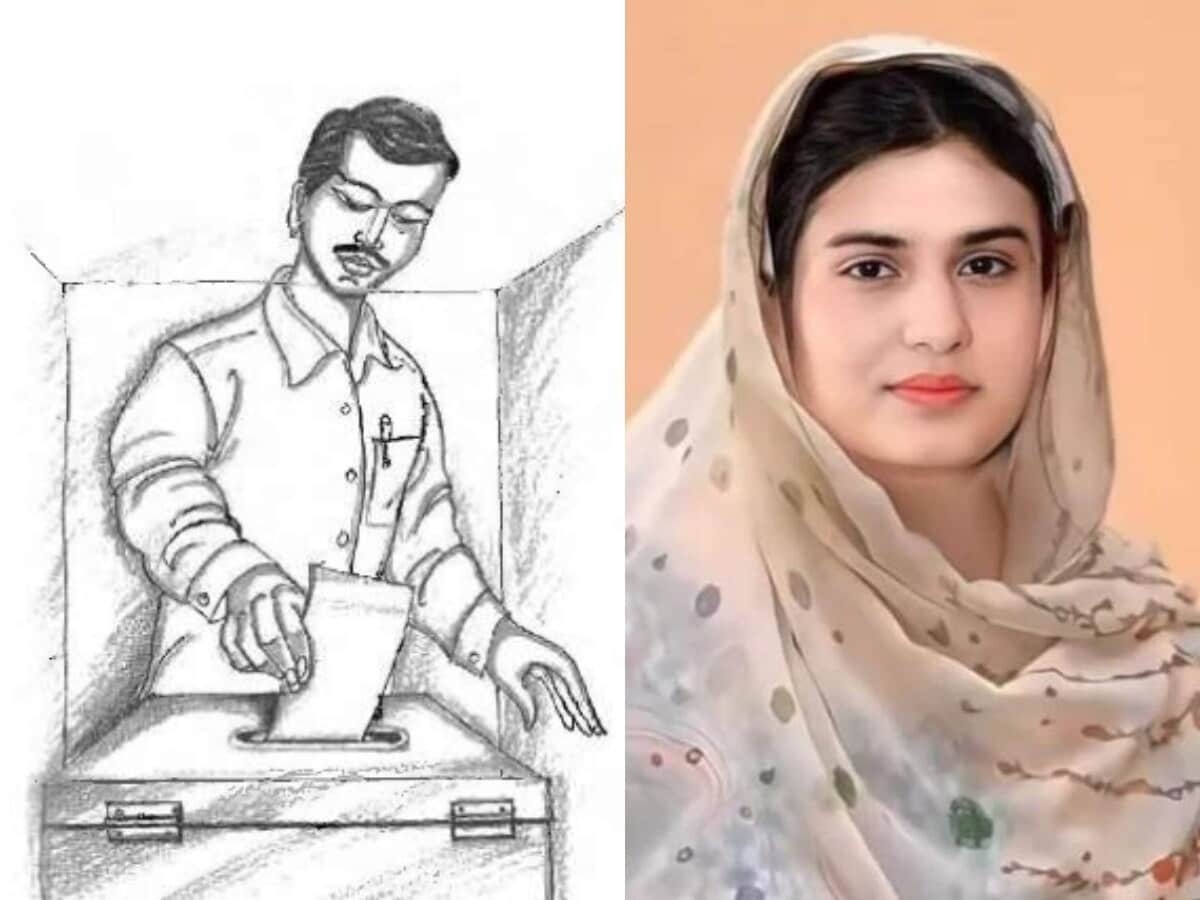Samajwadi Party MP Iqra Hasan Chaudhary, while suggesting changes in the electoral system of India, said that if the present pluralistic voting system (First Past the Post System) is replaced by the preferential voting system (Proportional Representation by Means of Single Transferable Vote), So hatred and polarization can be reduced in the country.
Iqra said that this system will not only make the election process more inclusive, but will also motivate leaders to connect with voters from every section. Explaining the usefulness of this system, he said that it will increase the feeling of balance and cooperation in electoral politics.
What is preferential voting system?
In the ranked-choice voting system, voters rank each candidate in the order of their preference. This system is already implemented in some areas in India, such as:
- Elections for teacher, graduate and local body seats of the Legislative Council.
- Presidential and Rajya Sabha elections.
In this system:
- Voters rank all the candidates on their ballot in order of their preference.
- Preference votes are counted first.
- If no candidate gets a majority (50%+1), the candidate with the fewest votes is eliminated.
- The second preference of his votes is counted and added to the remaining candidates.
- This process continues until a candidate obtains the required majority.
Iqra Hassan’s perspective
Iqra Hasan Choudhury said that with this system:
- Hate speech and polarization will reduce.
- Candidates will adopt more balanced and inclusive election strategies.
- Voters will not depend on just one section, but will try to get the support of all communities and groups.
She said, “If I am seeking votes of one community, I will not abuse the other community. I have to see how to get support from every section.”
Limitations of the current system
Lok Sabha and Assembly elections in India are held under the First Past the Post System. In this, the candidate who gets the most votes wins, even if he gets less than 50% of the total votes.
- This system promotes polarization and vote bank politics.
- Often, candidates only try to please their own support groups, thereby deepening divisions in society.
Advantages of preferential voting system
- Inclusivity:
Candidates have to connect with voters of every category. - Balanced Decision:
Voters make decisions not just based on their first choice, but by assessing all possible options. - Less Hate:
Parties and leaders need support from all communities instead of spreading hatred. - Appropriate representation:
The winner is the one who comes closest to the choice of the maximum number of voters.
Iqra Hasan’s statement: target on BJP
Iqra Hasan also targeted BJP while advocating the preference system. He said, “BJP does not ask for votes of Muslims, hence it makes them victims of hatred. This system will force leaders to raise the voice of every section.”
When asked why he took the name of only BJP, he clarified, “BJP does not give tickets to Muslims nor does it want their support. All sections get representation in other parties, but BJP ignores the country’s largest minority community.”
Example: Process of Preference System
Understand, if there are 1000 voters and 5 candidates are contesting:
- Voters rank the first candidate 1, the second 2, and so on.
- If a candidate does not get 50%+1 i.e. 501 votes, then the candidate getting the least votes is eliminated.
- The second preference votes of his/her votes are added to the remaining candidates.
- This process continues until a candidate obtains majority.
Current use of preference system in India
- presidential election.
- MLC elections for Rajya Sabha and Legislative Council.
- Elections for teacher, graduate, and local body seats of the Legislative Council.
In these elections:
- It is mandatory for voters to give their first preference.
- If the first preference vote is not cast, the ballot paper is cancelled.
- The remaining preferences are optional.
Importance of change in electoral system
Implementing the preference system can make electoral politics in India more balanced and inclusive. This system will motivate leaders to leave divisive politics and work for every section. This suggestion of Iqra Hasan Chaudhary can prove to be a meaningful step towards strengthening the democratic structure of India.
